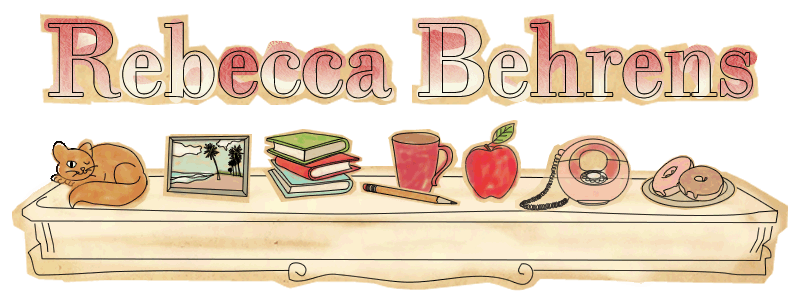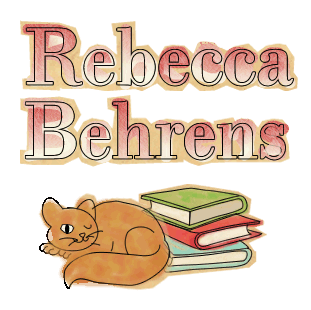Over the years I’ve gotten to learn a little bit about sketch comedy and improv because my husband is a long-time performer. I’m always amazed when I watch his shows at how the spontaneous collaboration works. Whenever someone onstage gets an idea rolling, the other performers embrace and expand it, and more often than not a pretty coherent story blossoms out of something as small as a single word. Considering that as many as half-dozen people are creating the story without actually negotiating the content, that’s impressive. I mean, I sometimes fight too much with myself to get anything on the page.
“Always say yes” is a rule in improv, and it’s a big part of what makes this creativity and collaboration possible. (Tina Fey talked about it in Bossypants and explains how saying yes changed her life here.) At its most basic, the idea applies to how you respond to the other performers within a scene. If you start with the intention that your scene is set in Antarctica, it’s your collaborator’s job to say yes to that idea. Not to think, No–we’re not in Antarctica; we’re at the mall on Black Friday. My idea is better; I’m changing this. No matter how wacked out the idea is, just go with it.
It’s even better to say “Yes, and . . . ” Build on ideas. So your partner places you in a scene in Antarctica, and you respond with “Yes, and we’re here because the plane crashed and now we’re stranded like the guys in the movie Alive.” And your partner might respond with, “Yes, and we would consider cannibalism to survive except we’re part of a group traveling home from a veganism conference.” And so on.
If someone refuses to say yes, things shut down. If someone doesn’t say “yes, and,” it doesn’t build. The same is true for revising.
Whenever you’re revising, and particularly when your revision involves the collaboration of someone else–like a CP, or an agent, or an editor–it’s good to keep an open mind. Approach the work with the mindset of saying yes, and–not with a mindset of no, because. Of course, this is easier said than done–nobody wants to kill his or her darlings, and a lot of times saying no is a reaction to that desire to retain and protect what we’ve worked so hard to create. Saying yes doesn’t mean blindly accepting suggestions, but pushing back out of instinct, or the need to control, instead of for a good reason can be limiting. Adding the “and” can be a way to make sure you take suggestions in a direction that’s right for you. Saying yes, and keeping yourself open to fresh ideas and collaboration, is a way to grow as a writer and a storyteller–and a way to make the revision process more creative.
So, writer friends: do you have a hard time saying yes to changes during revisions? How do you collaborate in the writing process?



Personally, I think revisions with the collaboration of others is a lot easier than improv. I’m always amazed how easy they make it look.
I have a hard time saying no when sometimes I should. My CP is often ready to shake some sense into me when I take advice of a beta that maybe I shouldn’t have.
Years ago, I was very protective/possessive of my writing. Once I was “done,” I never wanted to change a thing. Now I look forward to beta notes b/c they always spark new ideas for me. Of course, it helps to have insightful readers 🙂
This is such a great comparison. I definitely have a hard time taking some suggestions from my CPs, but most of the time they’re spot on. I refused to believe that my opening was info-dumpy and unnecessary (despite being told so very kindly by my CP). I just loved that opening way too much to see reason. Fast forward some months after receiving the same comments by others including an agent. Whoops! Guess I should have listened. There are times, though, when you have to just go with your gut because you know your story like nobody else (and where it’s going). 🙂
This is so what I needed right now. I’m revising a work with only myself right now (not CP-ready), but saying “yes and” to myself is still huge. There’s a lot of reworking I have to do, so thanks for this!
Great insight here. Having been a freelancer, I have always been open to changing my writing, but I seem to have the opposite problem. I don’t say “no, because” enough. I’m trying to remember that with creative writing, as opposed to business writing, you really can’t say yes to everything!
Great point about knowing when to say no. It’s easy to be too eager to please and say yes to too much–it’s hard to strike a balance!
I love this idea of YES, AND… Revisions are tough, especially when they’re big and initially hard to swallow. Keeping the positive YES in the back of our heads is a great way to keep an open mind and a fresh perspective. Thanks for this, Rebecca!
I’ve heard this improv “rule” before, but never thought about how it applies to revision! In fact, I’m thinking this will come in handy when I reach my inevitable “okay you have a first draft but now you need a plot” stage. If every answer to a “what if?” question was yes, we’d have a lot more interesting plots, wouldn’t we?
Love the post!!